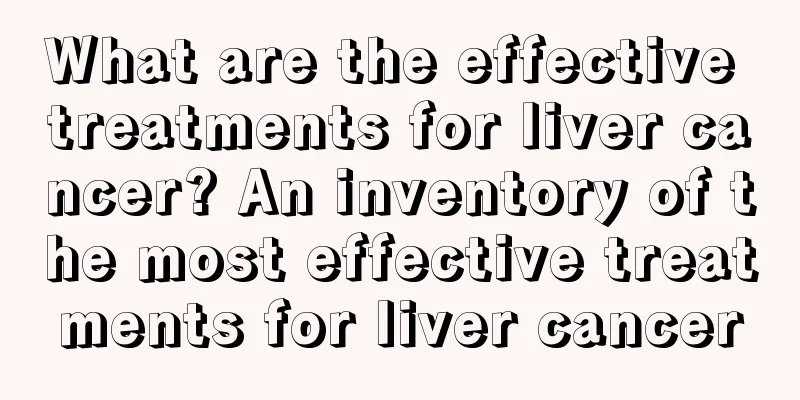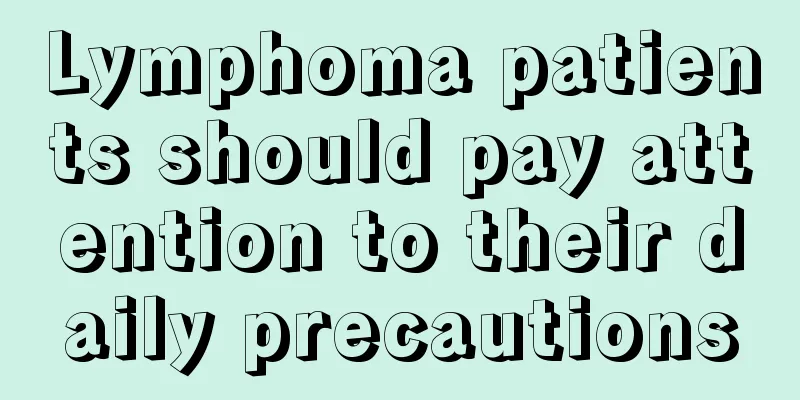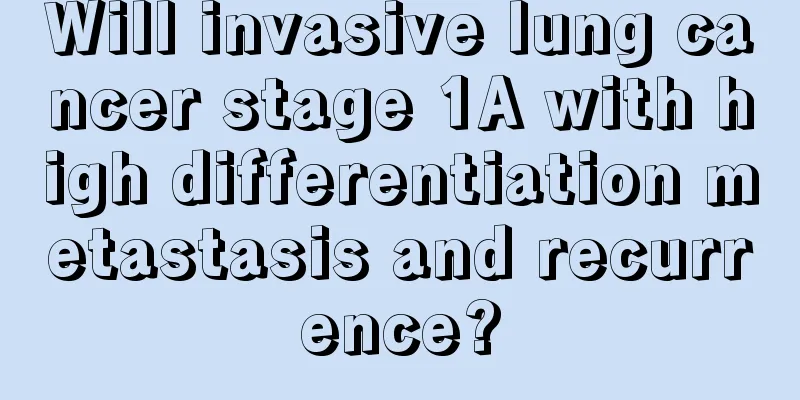What are the effective treatments for liver cancer? An inventory of the most effective treatments for liver cancer

|
Liver cancer, known as the "king of cancers", is a highly malignant cancer that is often accompanied by liver cirrhosis. Most patients are already in the middle or late stages when they are diagnosed, and the disease is prone to spread and relapse. Faced with a wide variety of treatments, patients often feel confused: which treatment is more effective? Recently, experts pointed out that cancer treatment is "different for each individual". Through targeted combined treatments, patients in both early and late stages may be able to effectively prolong their lives. Some early-stage patients can undergo liver transplantation When it comes to treating liver cancer, many people first think of surgery. Experts point out that if the cancer is still in the early stages, the liver cirrhosis is not severe, and the overall condition is relatively good, local resection can be used. Many patients with early liver cancer have long suffered from chronic liver disease and have severe cirrhosis. In this case, liver transplantation is more effective. Liver transplantation is already a relatively mature technology. For example, Changzheng Hospital has completed more than 1,240 liver transplants of various types. The first liver transplant recipient has survived for 18 years, the longest survival record after liver transplantation in China. The success rate of liver transplantation for liver cancer patients exceeds 98%, and the five-year survival rate after transplantation for early liver cancer is 70%, and the 10-year survival rate is 50%, reaching international standards. Experts pointed out that long-term comprehensive treatment is still needed after liver transplantation to ensure the efficacy. For some early-stage patients, local ablation therapy can also be used. Local ablation is a type of treatment that uses physical or chemical methods to directly kill tumor tissue locally, such as radiofrequency ablation and cryotherapy. Treatment in the middle and late stages requires "joint efforts" Even if liver cancer is in the middle or late stage, it does not mean that you can only "sit and wait for death". Professor Fu Zhiren pointed out that individualized combined treatment can effectively control the disease and prolong life. In the treatment of middle and late stage liver cancer, interventional therapy and targeted drug therapy play an important role. Interventional therapy is a type of regional chemotherapy that involves injecting anticancer drugs or embolic agents into the hepatic artery via femoral artery catheterization. It is currently one of the preferred methods for non-laparotomy treatment of liver cancer, and its efficacy has been confirmed. Molecular targeted drugs are one of the latest developments in cancer treatment. These drugs can precisely target tumor cells, unlike traditional chemotherapy drugs that "kill both good and bad" and damage healthy cells at the same time. Experts compare the growth of tumors to the growth of seeds, which cannot be separated from the nutrient supply of blood vessels. Molecular targeted therapy not only attacks the "seeds", but also cuts off the surrounding nutrient supply, and has a significant effect on many patients in the middle and late stages. Liver cancer treatment is closely related to liver function. Experts point out that we cannot just focus on the tumor, but also need to maintain liver function, so we need to carry out liver protection, enzyme reduction, bilirubin reduction and other treatments. For some patients in the middle and late stages, local resection, liver transplantation, and radiofrequency treatment are still effective, but they must be combined with comprehensive treatment methods. Experts emphasize that there are dozens of treatments for liver cancer, and no treatment can completely cure liver cancer. Even with early diagnosis and early treatment, comprehensive treatment is needed to prevent recurrence. In the middle and late stages of liver cancer, a combined treatment plan tailored to individual conditions is needed to achieve long-term survival. “Living with cancer”: Prolonging life with quality More than 70% of liver cancer patients in my country are diagnosed in the middle or late stages, at which point the tumor can no longer be eradicated. With the development of treatment technology, more and more patients are beginning to accept the concept of "peaceful coexistence" with liver cancer. Professor Fu Zhiren pointed out that through individualized comprehensive treatment, the cancer cells in cancer patients can be controlled and the body's condition can be balanced, which can not only significantly prolong life, but also allow patients to coexist peacefully with liver cancer, live with quality and dignity, enjoy the fun brought by life, and experience the true meaning of life. In clinical treatment, the cancer tissues of a few advanced patients have even shrunk or disappeared. The expert used the weather to compare life, saying that there are "clear skies" but also "rainy and cloudy days". He encouraged patients to maintain an optimistic attitude, look at the disease rationally, cooperate with doctors in active treatment, and allow their lives to continue with quality. |
Recommend
How many days after menstruation is the dangerous period
If female friends know the time of their menstrua...
Will blisters after burns leave scars?
Burns are a common type of injury in daily life. ...
Which of the 7 most harmful postures is yours?
Health is the capital of life, without health eve...
What are the benefits of washing your face with honey and salt
Many girls like to wash their faces with honey. A...
What is the difference between dark circles and eye bags?
Everyone must be familiar with dark circles. Dark...
How to care for patients with advanced liver cancer? 6 nursing measures for advanced liver cancer
Patients with advanced liver cancer must pay atte...
What should I do if my leg meridians are blocked
If the leg meridians are blocked, it will affect ...
Will breast cancer metastasize to the stomach?
Can breast cancer metastasize to the stomach? Exp...
Can pregnant women use disinfectant?
Most women will go through the process of pregnan...
Can I have double eyelids if my eye sockets are sunken?
Double eyelid surgery has now become a very popul...
What are the pros and cons of hitting your back against a wall?
I believe many people know the method of hitting ...
How to store bayberry when sending it
Bayberry is a fruit that is not easy to preserve,...
What is the reason for the red neck
The neck is a very sensitive part of our body and...
What's the matter with eye mucus in the morning
As we all know, every morning, eye boogers appear...
How to get to Vladivostok
China and Russia are neighboring countries, and m...









